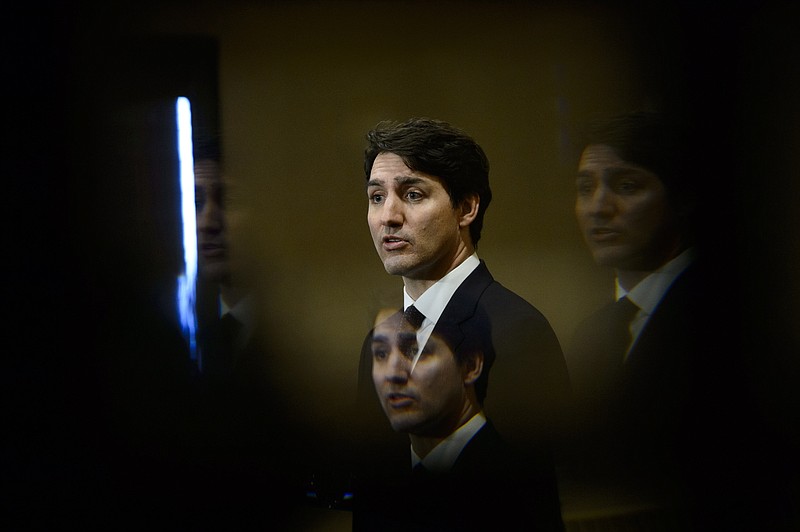TORONTO (AP) — There’s no money, no sex and nothing illegal happened. This is what passes for a scandal in Canada.
U.S. President Donald Trump has been engulfed in allegations involving possible collusion with Russia and secret payments to buy the silence of a porn star. Canadian Prime Minister Justin Trudeau is facing a controversy that seems trivial by comparison, but it could topple him in elections later this year.
Two high-profile women ministers in Trudeau’s Cabinet, including Canada’s first indigenous justice minister, resigned in protest, and his top aide and best friend quit too.
The former justice minister and attorney general, Jody Wilson-Raybould, says Trudeau and senior members of his government pressured her in a case involving a major Canadian engineering company accused of corruption related to its business dealings in Libya. Trudeau reportedly leaned on the attorney general to instruct prosecutors to reach the equivalent of plea deal, which would avoid a criminal prosecution of SNC-Lavalin, because he felt jobs were at stake.
“People south of the border would be astonished to think that this is the type of scandal that they have in Canada,” said Eddie Goldenberg, a former adviser to former Prime Minister Jean Chretien.
Many countries would be jealous of a scandal that went no further than a prime minster asking another minister to do something she is legally entitled to do, Goldenberg said.
“I just don’t really see it as a scandal,” he said. “There is a political correctness here. Nobody wants to go after an indigenous woman minister. It’s become politically incorrect to question the former minister.”
Trudeau has said he asked Wilson-Raybould to revisit her decision not to instruct prosecutors and said she agreed to consider that. He denied applying any inappropriate pressure, saying he and his officials were only pointing out that prosecution could endanger thousands of jobs.
SNC-Lavalin has pleaded not guilty to fraud and corruption charges related to allegations it paid about $35 million in bribes to public officials in Libya from 2001-11.
“It’s a pseudo-scandal. It’s crap. What the hell? You are doing business in Libya and you are not bribing?” said Robert Bothwell, a professor of Canadian history and international relations at the University of Toronto. “It does suggest to me that the director of public prosecutions … is also nuts. And so is Wilson-Raybould. These people are delusional.”
Wilson-Raybould was demoted from her role as attorney general and justice minister in January as part of a Cabinet shuffle by Trudeau. She has testified she believes she lost the justice job because she did not give in to “sustained” pressure to instruct the director of public prosecutions to negotiate a remediation agreement with SNC-Lavalin.
That solution would have avoided a potential criminal conviction that would bar the company from receiving any federal government business for a decade. The company is a major employer in Quebec, Trudeau’s home province. It has about 9,000 employees in Canada and more than 50,000 worldwide.
The company publicly led the lobbying charge for a law that allows for deferred prosecution agreements as a way to resolve the criminal charges it faces. The new attorney general has not ruled out approving a settlement.
Wilson-Raybould has said herself that the pressure from Trudeau and others was not illegal and she was not explicitly instructed to do a remediation agreement.

